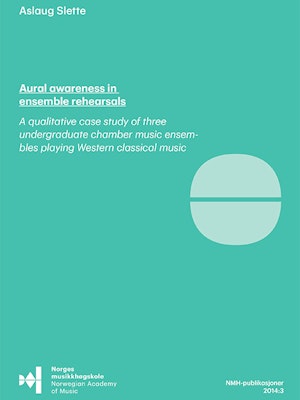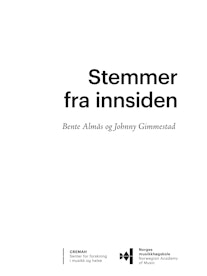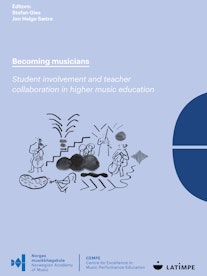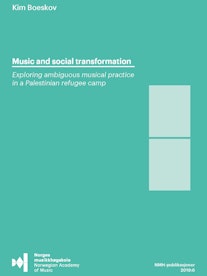Denne publikasjonen er kun tilgjengelig på engelsk.
Listening is central to musical performance. In undergraduate music studies aural training is therefore an important subject area, aiming at informing and supporting the students’ performance activities through the development of their aural awareness. For example, one may expect music students to be aurally aware in the unsupervised ensemble rehearsals they carry out as part of their curricular chamber music courses.
However, the ways in which aural awareness manifests itself in such rehearsals, and how it informs problem-solving processes, has received little attention. Hence, this thesis seeks to answer in what ways undergraduate music students playing Western classical music are aurally aware during ensemble rehearsals – and also how their aural awareness influences their collaborative efforts to improve their playing.
The thesis is a collective case study of three student ensembles from the Norwegian Academy of Music, using video observations of rehearsals and focus group interviews as data collection methods. Working from a sociocultural perspective, the thesis challenges the assumption that aural awareness is merely an individual phenomenon, and defines aural awareness within the collective learning situation of ensemble rehearsals.
The findings show that the different kinds of tools that are shared within the ensembles help them operationalize their aural awareness and mediate their understanding of the music in ways that inform their efforts to improve their playing. The thesis also suggests that the ensembles have different ways of negotiating aural awareness in ensemble rehearsals, and that these depend on how the ensembles manage to collaborate and share know-ledge.
This thesis contributes in particular to the field of research into higher music education by assisting to establish a research field of “aural training pedagogy in musical practice.”
- NMH-publikasjoner 2014:3.




